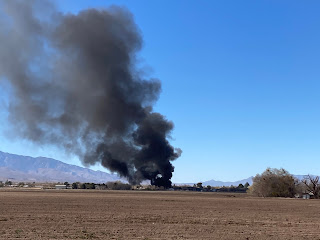Codependency 1: the first of what will be many entries
The text below is from my online journal entry from November 15, 2020. I was going to keep the writing on this topic private but I think this may be beneficial for the newly forming relationship. This is especially true since we both fall within this category, although we may experience this in different ways. Even with the little bit that I have learned, I can already identify a number of behaviors that have exhibited that have undermined relationships and my own well-being. I am also starting to see my family communication and behavior in a new light. It is pretty shocking in some cases. This will be the first of many entries on the topic. Here is the journal entry:
I'm starting to look into codependency and codependent personality. This is something David suggested and I was a little confused when he did. I was thinking of codependency as something where a person does not feel they can live without another person, and feels completely dependent on them. Apparently this is not the case. Here is something from a website that I found. I have bolded every one that applies to me.
There are certain characteristics that tend to dominate when a person has a codependent personality. They can include:
- Feeling responsible for the way other people feel, their thoughts, their choices and their general well-being.
- Finding it easy to feel and express anger when something bad happens to others, but not when something bad happens to you.
- Feeling your best when you are giving to other people.
- Feeling guilty when someone gives to you.
- Feeling compelled to help people fix their problems.
- Getting involved with another person to the point where you lose interest in your own life.
- Being unable to stop thinking, talking or worrying about other people and what is happening in their lives.
- Remaining in relationships that are not working.
- Tolerating abusive treatment just so the person will continue to love you.
- Leaving a bad relationship to form new ones that are just as destructive.
- Feeling empty inside without a crisis to deal with or a problem to solve.
- Having a hard time identifying what you are feeling inside.
- Getting upset when a person refuses your help.
Some of the bolded traits are things that I have experienced in the past, but have left behind. For example, when I was younger I would feel a disturbing lack of purpose when there was not something that I was fixing, or a problem I was solving. I recognized from watching my mother that this is destructive in interpersonal relationships. I was often the recipient of her need to fix people. I learned to channel those tendencies into my work, in a positive way. I am very careful about not letting that creep into relationships. I am also much more aware of what a bad relationship is, and how to avoid it. I don't get into a relationship just to be in one, rather, I hang on to relationships far past their time. That is more of my pattern. Also, I now have a better sense of self-worth, so I no longer tolerate abusive relationships out of a fear of not being loved. Rather, my tendency is to tolerate unacceptable situations due to a lack of awareness regarding what is acceptable, and a lack of understanding of my own feelings. Those are the current stumbling blocks. So, if I were to revise this list to reflect my current situation, it would look something like this:
- Feeling responsible for the way other people feel, their thoughts, their choices and their general well-being. I am beginning to understand and disentangle myself from this.
- Finding it easy to feel and express anger when something bad happens to others, but not when something bad happens to you. I am learning to be more in touch with my own sense of anger.
- Feeling your best when you are giving to other people. I am learning to take time for myself.
- Feeling guilty when someone gives to you. I am learning to be gracious and fight the impulse to immediately reciprocate as a way of deflecting. This happened recently with P., with regards to his amazing writing and my anxiety over not being able to "keep up."
- Feeling compelled to help people fix their problems. I am learning to step back and observe first, and ask myself what the best response is. Do I actually bear any responsibility for this? Is it best to just listen, or even disengage?
- Getting involved with another person to the point where you lose interest in your own life. This one gives me heartburn. There is a lot I don't understand about healthy boundaries here.
- Remaining in relationships that are not working. I recently took a big step toward ending this pattern, but I am still very aware that this tendency is here, not just in the romantic area of my life but friendships, family, and work as well.
- Having a hard time identifying what you are feeling inside. This is another area I am just beginning to understand. There is a lot of work here to be done.
I also took the Friel Co-Dependency Assessment and Inventory, a 60 question assessment. I scored 48, which signifies a "severe need for concern and intervention." This brings up the question: how does a person who is naturally empathic and caring draw the line between expressions of those traits, which can be positive, and codependency, which is destructive?

.HEIC)
Comments
Post a Comment